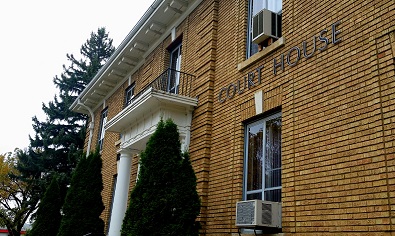The Crown is done calling its witnesses at trial for a stabbing in the Kinistin-Saulteaux area that ended a man’s life two years ago.
In September of 2013, Jordan Thomas Lumberjack was arrested for second-degree murder.
His cousin Lance Severight was the victim of a fatal stabbing and died due to blood loss on the way to hospital.
The trial by judge and 12-person jury started on Monday with 10 people testifying throughout the week at Melfort’s Court of Queen’s Bench.
They heard testimony from two police officers, a forensic pathologist, and seven civilian witnesses – some of whom said in court they witnessed virtually everything.
The last to go was the man who performed the autopsy, forensic pathologist Dr. Shaun Ladham.
He told court Severight was stabbed many times, but only one of the stab wounds from a single-edged knife (a steak knife is an example) was capable of killing him.
When the weapon punctured Severight’s aorta, he would have died of blood loss within five to 10 minutes, Ladham said.
No matter how fast Severight could have been rushed to hospital, there’s no way he could have been treated in time, he testified, saying “this is not a survivable injury.”
Several people in the court’s gallery cried and left the room sobbing as details were covered in Ladham’s testimony.
While getting into the technical aspects of the autopsy, Ladham explained some of the wounds on Severight weren’t fresh. This included bruises on his body that are in keeping with Severight’s clinical history of IV drug use.
The toxicology report for Severight indicated he had a high level of alcohol in his blood. Morphine – possibly that alone or from heroine – was also found, as well as methadone. Ladham explained Severight had been in a program to stop using IV opiates, which explains the methadone in his system.
The trial resumes on Monday next week with defense deciding whether or not he’ll be calling witnesses.
